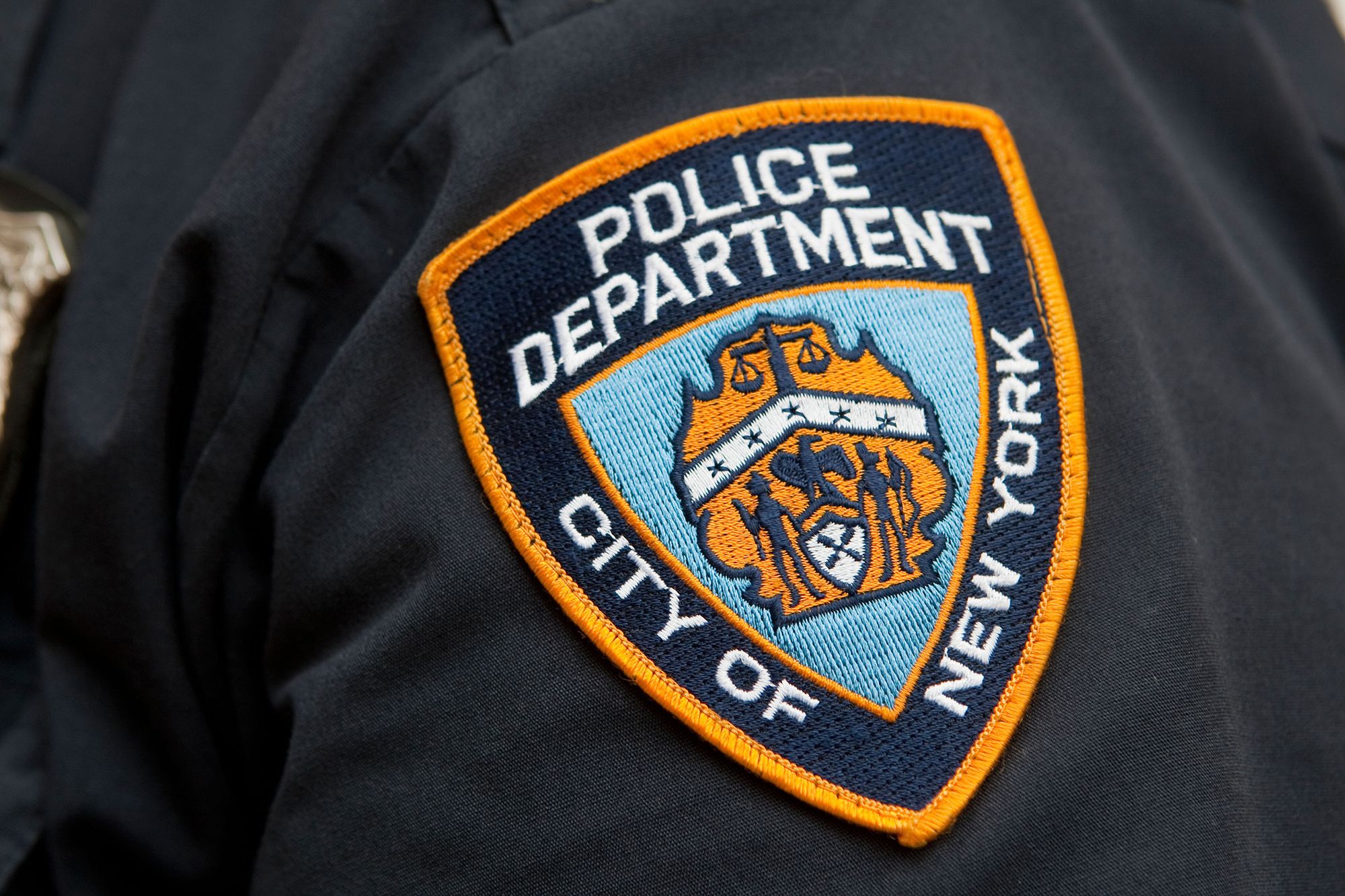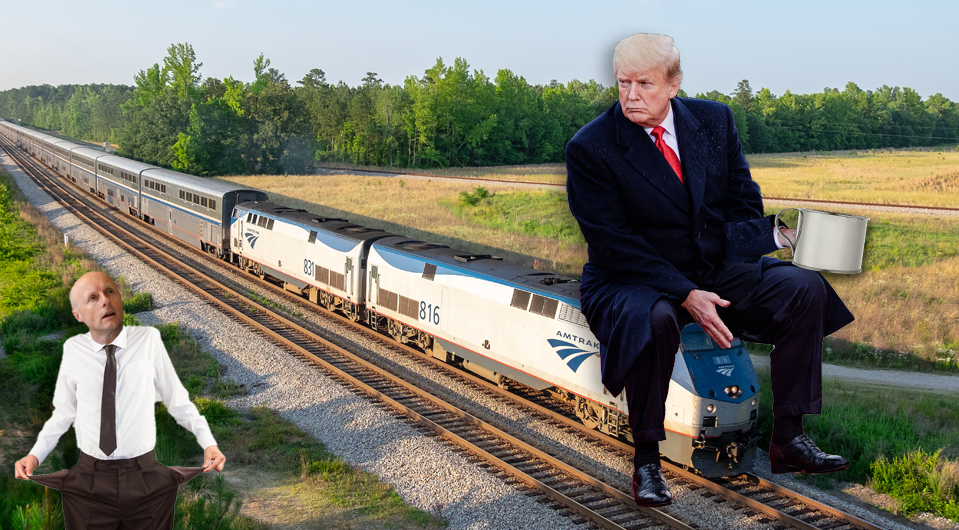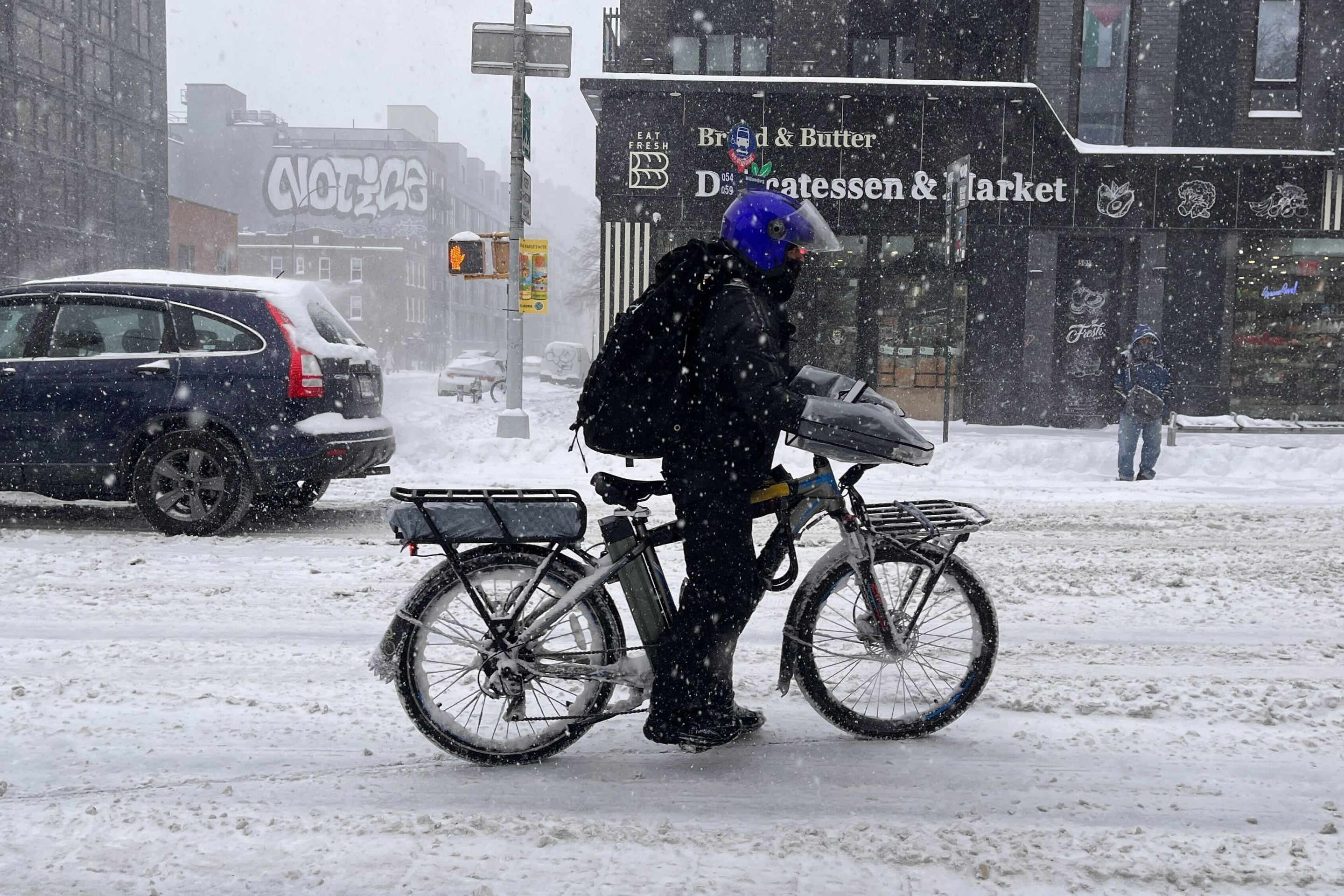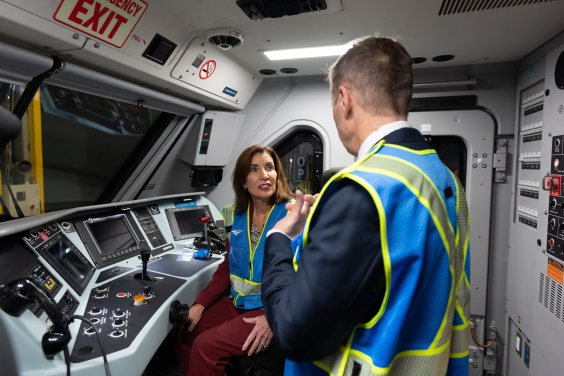Mayor de Blasio said on Wednesday that he still opposes a residency requirement for NYPD officers even though forced residency for the police department's civilian workforce has kept virtually all of that lower-paid workforce living within the five boroughs — a fact the mayor dismissed as "apples and oranges."
Advocates — most recently Attorney General Letitia James [PDF] — have long wanted a return to a residency requirement for NYPD cops that was in place in the 1960s, but the mayor has long resisted that particular reform on the grounds that city cops can't afford the high housing costs of the Big Apple.
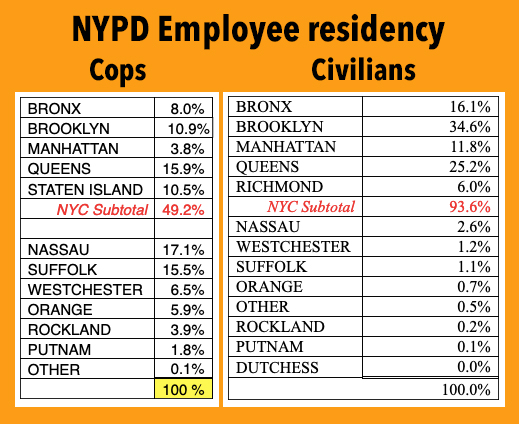
Except that they can.
New data leaked to Streetsblog by a city government source reveals that 93.6 percent of civilian employees of the NYPD, a workforce that generally earns less than uniformed cops, live within the five boroughs — the result of a mandatory two-year residency requirement that offers few exemptions. Currently, only 49 percent of cops, who earn $85,000-a-year after five years on the job, before overtime — live in the city (and that number is down from 58 percent of cops in 2016).
On Wednesday, Streetsblog asked Hizzoner if the residency gap between lower-paid civilians and NYPD cops "knocks down the myth — and your own rhetoric, frankly — that NYPD officers can’t be forced to live in the city because city housing costs are too high?"
"No, it's really apples and oranges," the mayor said, before adding, "I want to see more and more city residents and that's what we have to achieve."
He touted that the uniformed force is now comprised of a majority of people of color, but punted when it comes to how he will ensure that cops live in the city they serve.
"I want us to figure out how to create a reality where more and more officers do live in the city," he said. "One of the things to think about is what would help that happen? Is there some kind of way, some kind of policy, some kind of incentives, something that would help us ensure that more and more police officers live inside the city?"
Nonplussed, Streetsblog suggested that there is just such a policy — the same kind of residency requirement that keeps 94 percent of civilian NYPD employees living and spending in the city.
"It's a complex reality," the mayor claimed. "Look, to be a police officer in this city is a very high calling. [But] a lot of people want to and need to, in their view, live in a place where they can afford more [space], especially if they have a family. ... How do we create a reality where more officers can afford to live in New York City. ... That is something we need to address. It's not something you snap your fingers and do."
When I worked as a civilian city employee investigating complaints about NYPD officers, I was required to live in the 5 boros. Salary was *under* $30k, well below PD starting & miles beneath PD after 5 yrs w/OT. After *7 yrs,* my pay had gone up to barely $32k.
— Daniel Bodah (@bodahesq) August 12, 2020
The mayor's concern about housing costs seems misplaced. The starting salary of an NYPD officer is $42,500, which is well above the median income in The Bronx and close to the median income in Brooklyn — where millions of New Yorkers live. Within five-and-a-half years, an NYPD officer's salary balloons to $85,292 — which is nearly 50 percent above the city's median income, and that's before you add in the 27 paid vacation days, the unlimited sick leave with full pay and overtime.
And an officer can retire at half-pay after 22 years on the job.
As the NYPD's own website says, "Including holiday pay, longevity pay, uniform allowance, night differential and overtime, police officers may potentially earn over $100,000 per year."
Compare that to civilian employees. There are currently 19 full-time, civilian jobs in the NYPD that don't require advanced degrees posted on the city's website. The average salary for those jobs is $59,800, and the benefits are not as lavish as those enjoyed by uniformed NYPD employees.
The jobs include motor vehicle operator ($42,900), stock worker ($35,628), accountant ($53,983), various analyst positions ($70,661), a bookkeeper ($41,238) and a technician ($42,278).
Even advanced positions, such as a staff attorney ($67,970) and a telecommunications specialist ($78,114) offer salaries that are far lower than veteran cops who are allowed to live in the suburbs.
And as far as snapping one's fingers (as the mayor suggested), someone might have to snap the digits for him. State Sen. Kevin Parker of Brooklyn has a new bill that would require any cop hired after Jan. 1, 2021, to live in the city.
"We have to ensure that officers who are deployed to communities throughout New York City have a better understanding and respect for the culture of those living there," Parker said in a statement. "Police officers who live in the city they serve and belong to that community, are more inclined to be connected to the residents and their jobs, beyond a paycheck.”
The bill will face significant opposition from police unions, who argue the same position as Mayor de Blasio: it's too expensive for cops who make far more than most city residents to live in the city.
“The math is simple, New York City isn’t paying police officers enough to afford the high cost of living in the five boroughs, a fact that even Mayor de Blasio has admitted," Police Benevolent Association President Pat Lynch told WPIX recently. "So if Sen. Parker’s residency requirement isn’t accompanied by a significant pay increase, there will be fewer recruits who are financially able to do the job. That means fewer cops on the street and that is exactly what the anti-police movement wants.”
That is not what that movement wants, argues council candidate Nick Roloson. In fact, a residency requirement is not just about having officers living in the communities they serve, but also keeping their tax dollars from propping up suburban lifestyles.
"We lose millions of tax dollars when an annual $85,292 salary (before overtime) drives beyond the city limits. That money should be spent at Astoria bodegas instead of Patchogue delis," he recently wrote in the Queens Eagle.
Here's another eloquent take:
— King Bach (@KingBach) July 9, 2020
Officials from the unions that represent the NYPD's civilian workers did not return a request for comment.
